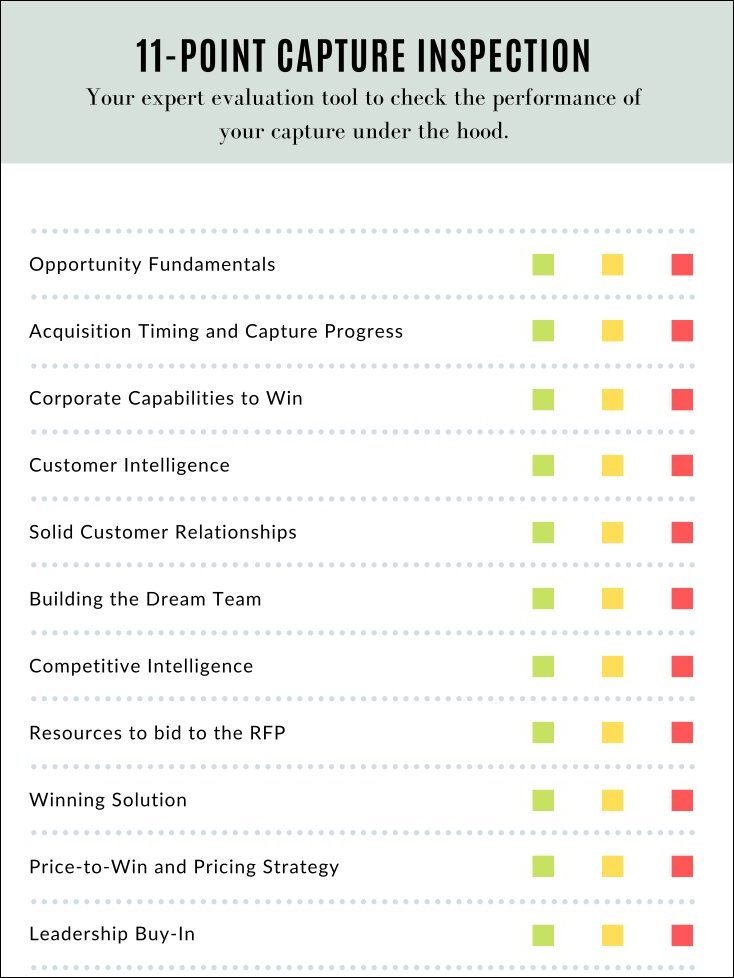What is capture management?
Capture management is a disciplined methodology for a bidder pursuing a specific government contract opportunity and improving the organization’s probability of winning (P-win) the opportunity.
Capture management is both an art and a science.
The art is the leadership, intuition, and savvy of the organization engaging in capture management and competing for the opportunity. Typically it takes an organization years to mature and refine their capture process so they can consistently win government contracts in a standardized way, while controlling the time and costs associated with bidding. It takes an individual capture manager several years of hands-on experience to become an expert.
The science is the disciplined methodology of the bidder for managing and measuring the health of specific elements driving the P-win. The 11 major elements that drive the success of a specific capture pursuit are the following.
Opportunity Fundamentals: Understanding of the specific fundamentals of this opportunity for capture planning purposes
Acquisition Timing and Capture Progress: Allows capture planning to make progress toward improving P-win against acquisition timeline
Corporate Capabilities to Win: Ability to demonstrate qualification to perform and a compelling offer to the customer decision-makers
Customer Intelligence: Understanding of the customer organization as a whole, as well as the politics, power structure, and preferences of individual customers
Solid Customer Relationships: Possessing a high-quality relationship with customer, where the customer knows, likes, and trusts the bidder and wants to do business with their organization
Building the Dream Team: Selecting subcontractors and partners that amplify the Prime contractor/bidder’s overall offering
Competitive Intelligence: Understanding of the companies or teams competing for this opportunity to allow for capture planning and strengthening the offering
Resources to Bid to the request for proposal (RFP): The organization possesses ample qualified people, time, and budget to bid on the RFP, based on the acquisition schedule and proposal requirements
Winning Solution: The bidder has a clear, articulate strategy for winning in technical, management, staffing, and past performance based on its understanding of the requirements.
Price-to-Win and Pricing Strategy: The bidder understands the price they need to propose to win and has a strategy to architect a proposal that will meet that price.
Leadership Buy-In: The capture management team is aligned internally with the organization’s leadership team in order to orchestrate the capture effort
In short, organizational maturity and higher win rates occur more rapidly when an organization invests in experienced capture managers who understand both the art and science of capture management.

